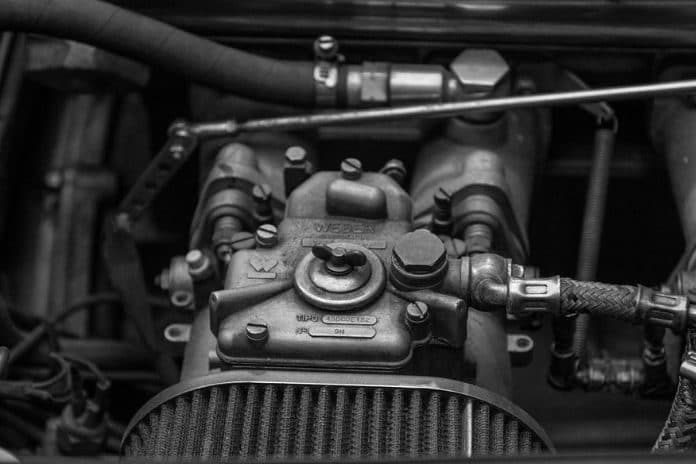
When your car is in its top shape, every component can deliver the optimum performance that you need. You can consider it a road-worthy vehicle that can take long road trips without any issues. One quality that a road-worthy car should have is not having problems when cranking the engine.
This indicates that all the components involved with the car’s ignition system is operating smoothly. When a vehicle is struggling to start its engine, it only means that there’s something wrong with the ignition system. It can be due to a battery issue, a bad starter, and anything related.
How do you tell if it’s your starter or your battery? If a car is having a problem starting or cranking its engine, it may be caused by a bad battery, a faulty starter, or any lousy ignition component. One way of telling if it is due to a bad battery or a broken starter is to observe the headlights and other electrical components of your car while attempting to start the engine.
If the lights are dim and you here a growl-like sound from the starter, that means the battery doesn’t supply enough power to start the engine. It is an indicator of a bad car battery. In case, the lights are bright and attempting to crank the engine doesn’t affect them, and it can be due to a faulty starter.
Another way to check if the starting problem is due to a bad battery is by checking it with a voltmeter or a multimeter. After checking your battery with any of the devices mentioned, if it reads twelve plus volts, it means that the car battery is healthy, but if the reading is less than twelve volts, it may indicate a weak cell or the battery is about to die.
If the reading says you have a good and robust battery, then the issue is may be due to a bad starter.
Having problems with a car that doesn’t start or trying to figure out if the reason for a failing ignition system is due to a bad battery or faulty starter?
I already gave you an idea of how to tell which is which earlier. If you are a newbie car owner eager to learn more, I encourage you to stay for a while. This article will enlighten you more about how the ignition system works and more helpful information.
Understanding How a Car’s Ignition System Works
In order for you to pinpoint the exact problem that causes your car to have difficulties starting. It will be best if you first understand the anatomy of a car’s ignition system and how it works.
This will give you the appropriate knowledge you need to understand each component involved in the process. It will also give you an idea of what can cause a car to struggle and have difficulties in starting.
The Anatomy of a Conventional Car Ignition System and How it Works
A typical automotive or car ignition system is consists of two different electrical circuits, namely, primary and secondary. These two circuits work together to deliver enough power the engine needed to start.
Each of these systems comprises various components that are related to each other to allow them to function as one unit.
Primary Ignition Circuit
The primary circuit of a car’s ignition system is operating with the battery, ignition switch and the starter. This is where the ignition process starts and then carried out to the secondary system, bridged by the starter.
Secondary Ignition Circuit
Connected with the primary circuit through the starter, the ignition system’s secondary circuit operates with spark plugs and the rotors. In this electrical circuit, the small voltage passed by the primary circuit is amplified and converted to the power the engine needs to start.
The ignition process works by generating a low amount of voltage within the primary circuit, passing it to the secondary circuit through the starter.
This generates a magnetic field within the starter, producing a higher voltage distributed throughout the essential components. When the spark from the spark plugs reaches gas and fuel mixture within the cylinder, combustion begins.
That means that every component of the ignition system is essential for the entire process.
In case any of its elements are faulty, the ignition will fail. So, in order for the system to perform well, the battery, starter, spark plugs, and other elements should be in good condition.
Telling if Failing Ignition System is Due to Battery or a Bad Starter
Now that you understand the anatomy of a car’s ignition system and how it works. You are now equipped with the essential knowledge that will give you an idea of what causes a car to struggle to start.
If it is down to your bad battery or a faulty starter, seasoned mechanics can quickly predict if it is because of the starter or battery. Even you can do it if you know what the roles they play in the process are.
The proper way of telling if the starting problems are due to the car battery or a bad starter is testing both components to see if which one fails. However, by using experience and know-how, there’s a way to come up with a hypothetical logical guest like the one I mentioned when I answered the question earlier.
Keep in mind that the battery is responsible for supplying electricity for the entire vehicle and the power it needs to crank the engine. In contrast, the starter’s sole purpose is to carry out the early stages of ignition.
With this said, it is safe to say that attempting to crank the engine without affecting the power the electronic components of the car receive indicates a battery in good condition. Otherwise, the power will have a sort of fluctuation.
On that note, when it is down between the battery and the starter. It is safe to say that if the attempt to crank the engine affects the current received by the electrical components.
Like if the lights go dimmer, it can be due to the battery. If the attempt does not affect the current and no response or action, the starting problem may be due to a faulty starter.
Telltale Signs or Symptoms of a Faulty or Bad Car Starter
Basing on all the facts that we’ve gone through earlier and taking a closer look at most of them, we can say that if the starting problem if a car is due to its battery. It can be easier to tell, compared to a bad starter causing the issue.
With that said, to further help you determine if your car’s starting issue is due to a faulty starter, here are some of the most common telltale signs of a failing car starter.
1. Engine Won’t Start and There Will Be No Response at All
One of the most common symptoms of a failing starter is when the vehicle doesn’t start and attempting to crank its engine leaves no response. This is indicated if you are trying to start the engine of your car, and you don’t hear anything from the engine, starter, or any kind of clanking noise or whatsoever.
Since the starter’s only purpose is to initiate the ignition, having no response at all is a possibility. This kind of issue is often due to the starter’s solenoid component or an electrical issue. Although a problem like this can also be caused by a dead battery, it is a case that seldom happens.
2. Engaging Car Starter but Unable to Spin the Motor
You have to bear in mind that most issues with the starter have a mechanical nature, which means mechanical response should always be present. There are cases that starter tends to engage, but the problem starts with the cranking over the motor.
This is often caused by poor connection between the gears that are connected with the engine’s flywheel. It is the missing mechanical reaction needed for the engine to ignite and start.
3. Frequent or Occasional Issues in Starting
Another telltale sign of a faulty starter is having sporadic ignition problems. If you are starting to notice that you are experiencing frequent starting issues with your car, then there’s a good chance that you will have a failing starter.
Especially when you have a new battery or your battery is in good condition. An issue like this is often due to a loose connection within the starting system, which is common in the starter if you are starting to have frequent starting problem, inspecting your starter is recommended.
4. Trying to Start the Engine Generates a Grinding Noise
As I mentioned earlier, starter issues are mostly due to a mechanical problem. Whether the problem is within the starter itself or the gears connected with the engine’s flywheel.
If you are grinding-like noise every time you attempt to crank the engine, it may indicate that your starter is failing. This is an issue that may be caused by worn-out gears within the starter or the connected gears to the flywheel.
5. Smoke Is Generated Every Time You Start the Engine
Another common symptom of a failing car starter is when you see or smell smoke every time you attempt to start your engine. Cases like this are often caused by overheating starter motor or when the starter motor does not shut down after cranking it.
This is usually because of a short circuit within the starter, triggering it to generate smoke that we usually smell.





